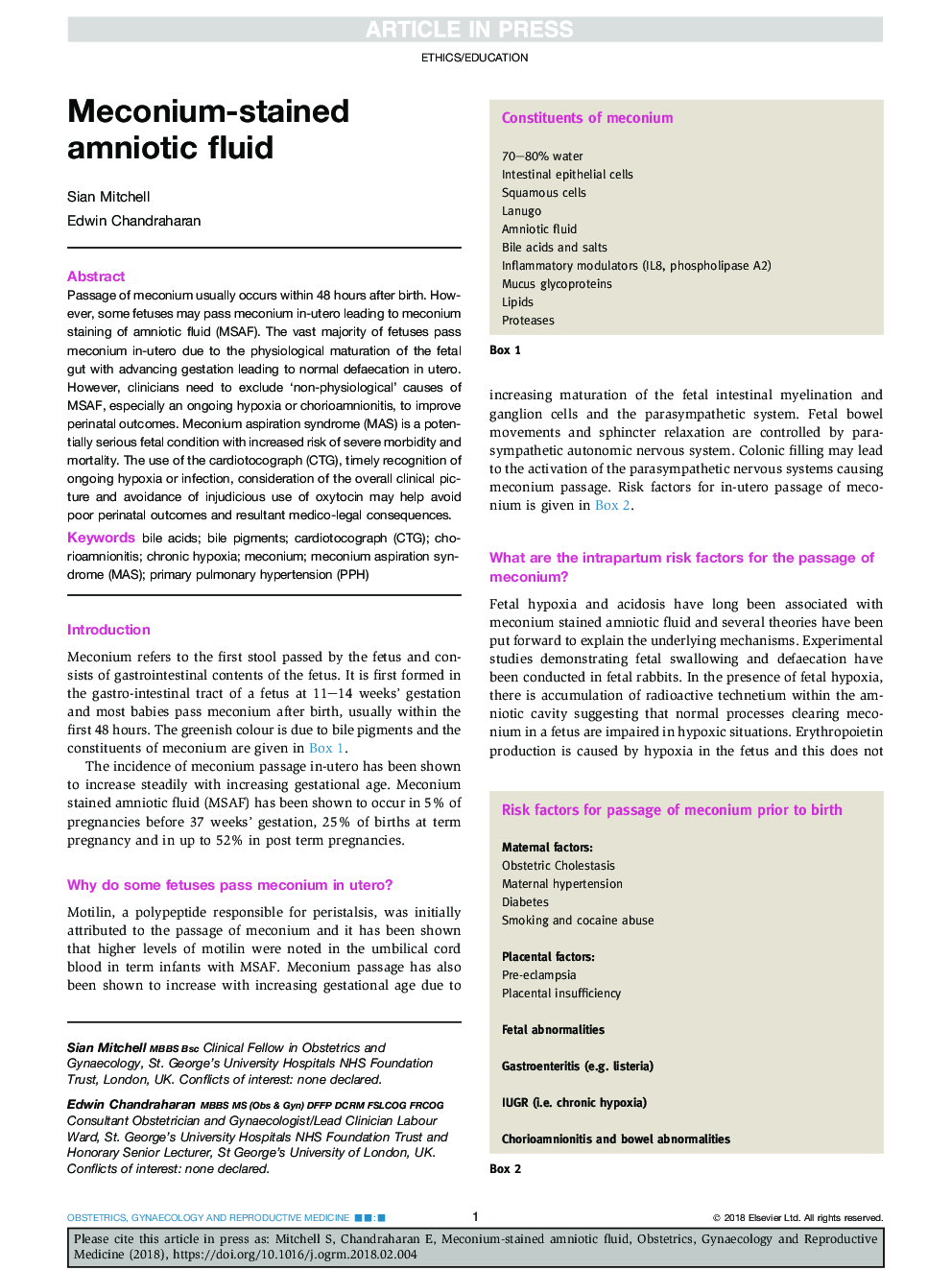| Article ID | Journal | Published Year | Pages | File Type |
|---|---|---|---|---|
| 8783402 | Obstetrics, Gynaecology & Reproductive Medicine | 2018 | 5 Pages |
Abstract
Passage of meconium usually occurs within 48 hours after birth. However, some fetuses may pass meconium in-utero leading to meconium staining of amniotic fluid (MSAF). The vast majority of fetuses pass meconium in-utero due to the physiological maturation of the fetal gut with advancing gestation leading to normal defaecation in utero. However, clinicians need to exclude 'non-physiological' causes of MSAF, especially an ongoing hypoxia or chorioamnionitis, to improve perinatal outcomes. Meconium aspiration syndrome (MAS) is a potentially serious fetal condition with increased risk of severe morbidity and mortality. The use of the cardiotocograph (CTG), timely recognition of ongoing hypoxia or infection, consideration of the overall clinical picture and avoidance of injudicious use of oxytocin may help avoid poor perinatal outcomes and resultant medico-legal consequences.
Keywords
Related Topics
Health Sciences
Medicine and Dentistry
Obstetrics, Gynecology and Women's Health
Authors
Sian Mitchell, Edwin Chandraharan,
